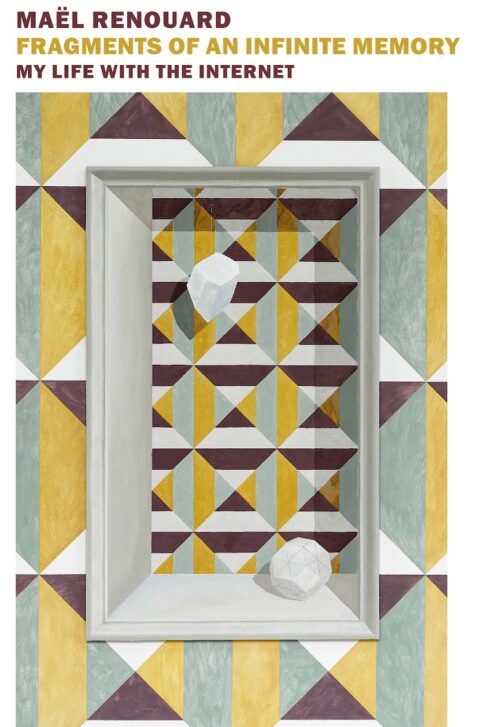A few years back, I went on a tour of an Amazon warehouse. The tour started in a cramped room where our group was compelled to watch a promotional video, after which we were shunted through a maze of aisles and conveyer belts. We ended with a vista-like view of the entire floor, filled with what seemed to be acres of consumer goods. Rows and rows of … stuff, with antlike armies of pickers sifting through the aisles, preparing orders to be boxed and shipped.
 Looking down upon all that, I was struck by an unsettled feeling, one wholly distinct from the queasiness I felt about Amazon as a company — a blend of vertigo and omnivorousness. It’s all here, I might’ve said. In that vast landscape, it felt, oddly, like it was possible to collect and possess everything the world had on offer. Odd, because I’ve never felt that way at a vista point in nature — my lizard brain doesn’t become all-consuming when I’ve looked down at canyons or cornfields from an airplane window, say, or stood before an ocean. But at the warehouse, I had the sense that humanity had created a simulacrum of existence, one that contained, if not everything, then everything necessary. It seemed fitting that Amazon doesn’t call these facilities warehouses; they’re fulfillment centers, a term that felt gross, uncanny, and true.
Looking down upon all that, I was struck by an unsettled feeling, one wholly distinct from the queasiness I felt about Amazon as a company — a blend of vertigo and omnivorousness. It’s all here, I might’ve said. In that vast landscape, it felt, oddly, like it was possible to collect and possess everything the world had on offer. Odd, because I’ve never felt that way at a vista point in nature — my lizard brain doesn’t become all-consuming when I’ve looked down at canyons or cornfields from an airplane window, say, or stood before an ocean. But at the warehouse, I had the sense that humanity had created a simulacrum of existence, one that contained, if not everything, then everything necessary. It seemed fitting that Amazon doesn’t call these facilities warehouses; they’re fulfillment centers, a term that felt gross, uncanny, and true.
Maël Renouard, in his book Fragments of an Infinite Memory, captures a similar emotion when it comes to the internet. Now that Google can infuse (inject? infect?) us with so much raw information, he writes, we’re not far from having it merge with the totality of our senses, and even with our capacity for thought. “The time has come for us to be able to write and send messages within our mind,” as a friend tells Renouard. But the future may be even more efficient than that. “We will do a Google search exactly as we go looking through our memories, by a simple act of the mind which, like memory, will require neither the hand nor the eye as intermediary,” he writes. “We will use this inner Google to look up words and phrases in a foreign language,” he writes. “The memory of which our brain is the organ will no longer be an individual memory.” Renouard’s vision of the internet is one that is capable of doing a lot of our feeling and knowledge-gathering for us, and it’s persuasive because we can all cite examples where we’ve felt that happen, from auto-completes to self-driving cars.
Renouard, a novelist, essayist, translator, and former speechwriter for French prime minister François Fillon, renders no judgments upon this possible future, a posture that at first felt as disorienting to me as my view from Mt. Fulfillment. We’ve been conditioned to expect one of two narratives in books about the internet, and Renouard has written neither of them. He is not a whiz-bang pop-futurist TED Talk influencer hyping the possibilities of new technology; nor is he a scold or a pessimist, citing the various ways that the internet has stoked monopolies, eroded privacy, made us dumb, and incited misogyny and racism. An internet critic like Jaron Lanier would grasp Renouard’s efforts to describe the emotional and social rewiring that the internet has done on us, especially in recent years; so would Bill Gates. But both, I imagine, would see them as beside the point.
 Renouard’s third way, though, has the virtue of reframing the internet as a place that is making tweaks to our emotions that are subtler than political rage and FOMO. “Melancholy is the future of emotion,” he writes, by which I think he means we’re destined for a future where we feel like we have access to everything but also recognize the hollowness of that feeling. He encapsulates this disorientation by compiling a series of YouTube comments left on music videos, exemplified by one user who writes, “this song brings me memories I don’t have.”
Renouard’s third way, though, has the virtue of reframing the internet as a place that is making tweaks to our emotions that are subtler than political rage and FOMO. “Melancholy is the future of emotion,” he writes, by which I think he means we’re destined for a future where we feel like we have access to everything but also recognize the hollowness of that feeling. He encapsulates this disorientation by compiling a series of YouTube comments left on music videos, exemplified by one user who writes, “this song brings me memories I don’t have.”
The internet is a canny repository of many such false sensations. Friends aren’t friends, followers don’t follow, links are digressions not connections, truth is a partisan cudgel in the hands of countless memelords. Renouard’s book, first published in France in 2016, can’t speak to our immediate moment, but it’s relevant in its broad strokes. The internet, he writes, has turned knowledge inside out: Books, once our chief repository of wisdom, are now walled-off and inaccessible, “a distant and secret refuge protected from the curiosity of readers.” Information gives us more things to contemplate but hardly lets us think about them: “The last fortress of our involuntary memory will have been conquered by the recollection machine.” The internet will wreck our privacy, but our morality will simply adapt to it. The internet never forgets, but we’re now free not to think: “We have simultaneously become capable of forgetting nothing and incapable of remembering anything at all.”
If Renouard is troubled by any of these propositions, he doesn’t let on. The structure of Fragments resists synthesis: These are “fragments,” after all, riffs that sometimes engage philosophically (most commonly with French poststructuralists like Baudrillard, Deleuze, etc.), sometimes personally. This sometimes leads him to overstatements like “the internet will teach us to be more likeable, or less touchy.” (Tell it to the Gamergate bros.) Or statements so broad as to feel meaningless: “A day will therefore arrive when everything has been said, when it will no longer be possible to say anything that hasn’t already been said.” Such a time might be speeded by the internet, but is so far in the offing that it’s hardly relevant. One might as well warn us that the earth will eventually be consumed by the sun.
 Also: Are we truly forever disoriented? Doomed to life on Mt. Fulfillment, swamped by data and always melancholy about it? Renouard is correct to note that any work of fiction set after 2010 would seem strange if the internet didn’t have a place in it. The internet is often inseparable from much of our existence. But that’s not to say it is existence, or even getting asymptotically close to it. We can shut off; we can access books; we can think and assert; the internet stokes melancholy, but doesn’t doom us to it. YouTube nostalgia is an interesting place to visit, but we don’t live there.
Also: Are we truly forever disoriented? Doomed to life on Mt. Fulfillment, swamped by data and always melancholy about it? Renouard is correct to note that any work of fiction set after 2010 would seem strange if the internet didn’t have a place in it. The internet is often inseparable from much of our existence. But that’s not to say it is existence, or even getting asymptotically close to it. We can shut off; we can access books; we can think and assert; the internet stokes melancholy, but doesn’t doom us to it. YouTube nostalgia is an interesting place to visit, but we don’t live there.
At one point Renouard himself sounds a skeptical note about all this. He asks, “What is there of a person in his traces, even if we reach a totality, a saturation, in the Great Downloading?” The internet tempts us into thinking it’s everything because it gives so much. It confounds our senses because it mimics them so well; it conflates truth and fact by making both seem porous. And it demands we still live with it. We’ll need tools to better navigate this, and one more irony about the internet is that that the internet is unlikely to provide such tools. To that end, Renouard makes a statement that’s indisputably true: “We aren’t mature enough for this invention.”
[Published Feb. 9, 2021 by New York Review Books. 177 pages, $17.95 paperback]